AACR Journals: Publishing High-Impact Cancer Science
The frontiers of cancer science are continually shifting to accommodate emerging areas of discovery, and the AACR scientific publishing program is continually adapting to highlight the most significant advances in basic, translational, clinical, and epidemiological cancer research.
A New Home for Hematologic Malignancies Research: Blood Cancer Discovery
Over the past few years, the AACR has taken a leadership role in the area of hematologic malignancies, which account for 10 percent of cancer cases and 9 percent of cancer deaths annually in the United States. A productive collaboration with the meeting organizers in Lugano, Switzerland to enhance the program of the International Conference on Malignant Lymphoma in 2017 led to the launch of a new AACR meeting series on Advances in Malignant Lymphoma in the United States in 2018. In July of 2019, the new AACR Hematologic Malignancies Task Force—chaired by Jonathan D. Licht, MD—held its inaugural meeting to define the AACR’s role in accelerating progress against blood-based cancers. And at the AACR Annual Meeting 2019, AACR President (2018–2019) Elizabeth M. Jaffee, MD, FAACR, announced the launch of the newest AACR journal, Blood Cancer Discovery. Under the leadership of inaugural editors-in-chief Riccardo Dalla-Favera, MD, FAACR (near right), and Kenneth C. Anderson, MD, FAACR (far right), the ninth journal in the AACR scientific publishing program will provide a vital new forum for innovative basic, translational, and clinical research on all subtypes of leukemia, lymphoma, and myeloma, as well as associated diseases. The journal began online publication in December, and the first issues are expected to publish in mid-2020.
Dr. Dalla-Favera is director of the Institute for Cancer Genetics at Columbia University, and his work on the pathogenesis of cancers derived from B lymphocytes has led to the development of diagnostic tests that are now being evaluated in clinical trials. Dr. Anderson is the program director at the Jerome Lipper Multiple Myeloma Center and LeBow Institute for Myeloma Therapeutics at Dana-Farber Cancer Institute. His laboratory and clinical work focusing on multiple myeloma have led to the development of novel targeted therapies that have received U.S. FDA approval. Under their leadership, Blood Cancer Discovery will highlight the most significant work in the field of hematologic malignancies and inspire new thinking about blood cancers.

New Editorial Leadership
Three AACR journals welcomed new editors-in-chief in 2019:
- Cancer Epidemiology, Biomarkers & Prevention (CEBP)
In January 2019, Elizabeth A. Platz, ScD, MPH, began her appointment as the new editor-in-chief of CEBP, the AACR’s journal of original population-based research on cancer etiology, prevention, surveillance, and survivorship. A renowned leader of multidisciplinary prostate cancer research teams, Dr. Platz is at the forefront of epidemiologic research on the role of inflammation in the development of prostate cancer, and on telomere length as a prognostic marker for poor outcome after treatment for prostate cancer. She currently serves as professor and deputy chair of the Department of Epidemiology at Johns Hopkins Bloomberg School of Public Health and coleader of the Cancer Prevention and Control Program at the Sidney Kimmel Comprehensive Cancer Center at Johns Hopkins.
In her inaugural editorial, Dr. Platz noted that cancer mortality rates have declined tremendously in the United States and in other high-income countries during the 28 years since CEBP began publication, a decline that was due in part to advances in population-level cancer prevention and early detection strategies. She also noted, however, that these advances have not been distributed equally among all populations and across all cancer types, and she pledged to continue the journal’s leadership role in population science.
- Molecular Cancer Therapeutics (MCT)
Beverly A. Teicher, PhD (right), assumed the role of editor-in-chief of MCT in January 2019. Dr. Teicher has led laboratories and teams that have contributed critical preclinical studies to several approved anticancer agents and several investigational agents currently in clinical trials. She previously served as a senior editor for MCT and for the AACR journal Clinical Cancer Research.
MCT is the AACR’s publication forum for the best science in the design, synthesis, discovery, and preclinical study of novel therapeutic agents for the treatment or prevention of cancer. The journal began publication in 2001, the same year that the first small-molecule receptor tyrosine kinase inhibitor (imatinib) received FDA approval. Since that time, the spectrum of cancer therapeutics has expanded dramatically, and during her first year as editor Dr. Teicher has expanded the journal’s focus to cover all classes of experimental therapeutics that have the potential to move forward into clinical development. To address the critical issue of reproducibility in scientific inquiry, she has implemented rules requiring that papers include detailed methods, document experiments performed in multiple models, and provide chemical structures for relevant new entities.
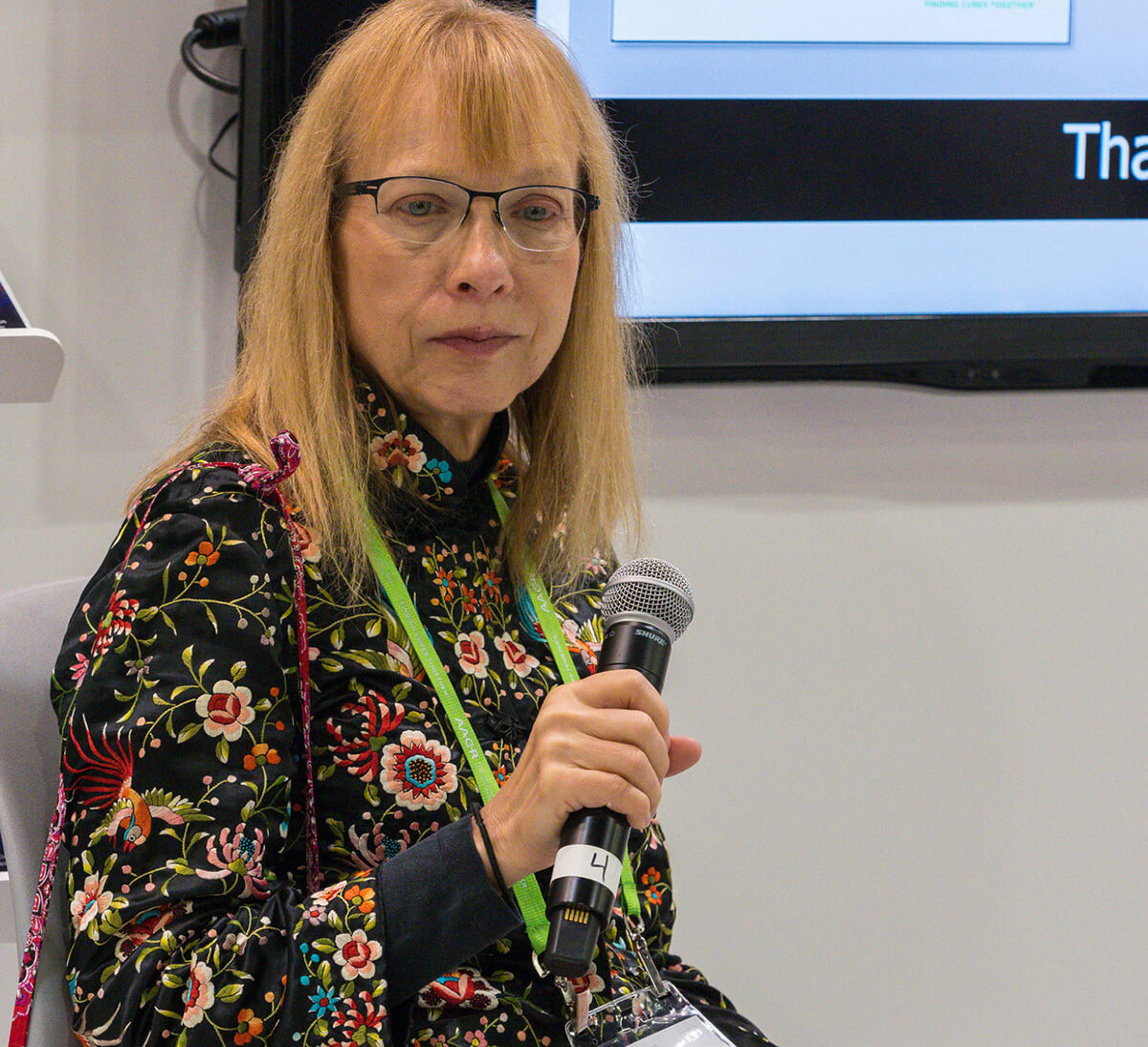
- Cancer Prevention Research
Cancer Prevention Research (CAPR), the AACR’s publication venue for basic, translational, and clinical research on the biology of premalignancy, risk factors and risk assessment, early detection research, and chemopreventive interventions, completed its transition to new editorial leadership in 2019. New editors-in-chief Raymond N. DuBois, MD, PhD, FAACR, and Michael N. Pollak, MD, began their appointments in July 2018, and in 2019 they expanded the journal’s scope to include critical areas such as interrupting the development processes of primary and secondary cancers and blocking cancer progression to advanced disease. They also positioned CAPR to explore promising areas in cancer prevention science, including immunologic approaches to risk reduction; the application of “big data” to identify modifiable risk factors; the use of genetic profiles to better target interventions; and exploration of modifiable variations in the microbiome in relation to cancer risk.
An AACR past president and Fellow of the AACR Academy, Dr. DuBois is dean of the College of Medicine at the Medical University of South Carolina. He is an internationally renowned expert in the molecular and genetic basis of colorectal cancer whose work has led to a better understanding of the role of anti-inflammatory agents in the tumor microenvironment. Dr. Pollak, who has served on the editorial board of CAPR since its launch in 2008, directs the Division of Cancer Prevention of the Department of Oncology at McGill University in Montreal. He is a medical oncologist who collaborates with research groups around the world to conduct epidemiologic studies, laboratory investigations, and clinical trials related to the role of growth factors in human cancer. Under their leadership, CAPR will continue to be a critical resource for the academic, industry, and policy making communities on the critical role of prevention in global cancer control.
Scientific Publishing By The Numbers
26.370
Current Impact Factor for Cancer Discovery—which ranks sixth out of 229 journals in the Oncology category—according to the 2018 Journal Citation Report.
30
Days from manuscript submission to first decision (on average). The AACR has made a concerted effort to reduce turnaround times for peer review, to improve the overall author experience and accelerate the pace of progress against cancer.
26 million
Full-text views of AACR journal articles were recorded in 2019.
9
Twitter accounts for AACR journals. All of the AACR’s highly renowned scientific journals—including the newest journal, Blood Cancer Discovery—established their presence on social media in 2019:
Blood Cancer Discovery:
@BCD_AACR
Cancer Discovery:
@CD_AACR
Cancer Epidemiology,
Biomarkers & Prevention:
@CEBP_AACR
Cancer Immunology Research:
@CIR_AACR
Cancer Prevention Research:
@CAPR_AACR
Cancer Research:
@CR_AACR
Clinical Cancer Research:
@CCR_AACR
Molecular Cancer Research:
@MCR_AACR
Molecular Cancer Therapeutics:
@MCT_AACR
Editors-in-Chief
The AACR thanks its editors-in-chief for their hard work and stewardship of its scientific publishing program during 2019.
Cancer Discovery
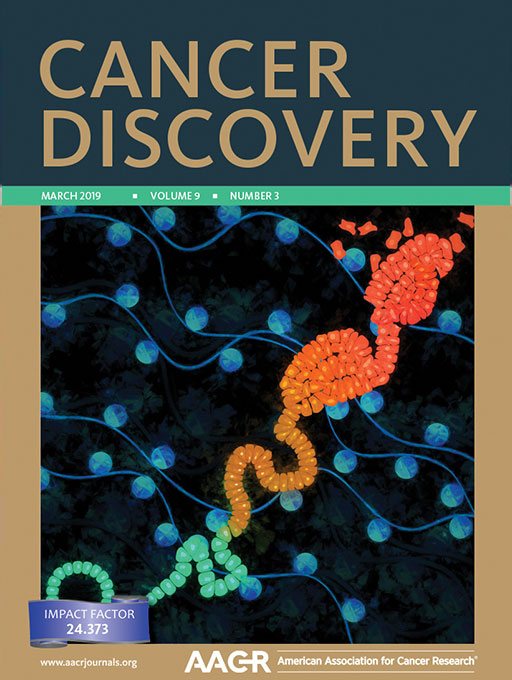

Lewis C. Cantley, PhD, FAACR
Sandra and Edward Meyer
Cancer Center at Weill Cornell Medical College
New York, New York

Luis A. Diaz, MD
Memorial Sloan Kettering Cancer Center
New York, New York
Cancer Epidemiology, Biomarkers & Prevention
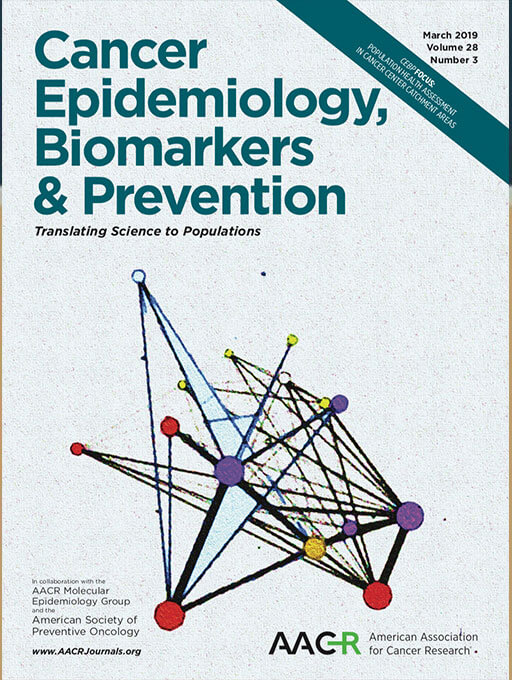

Elizabeth A. Platz, ScD, MPH
Johns Hopkins Bloomberg School of Public Health
Sidney Kimmel Comprehensive Cancer Center at Johns Hopkins
Baltimore, Maryland
Cancer Immunology Research
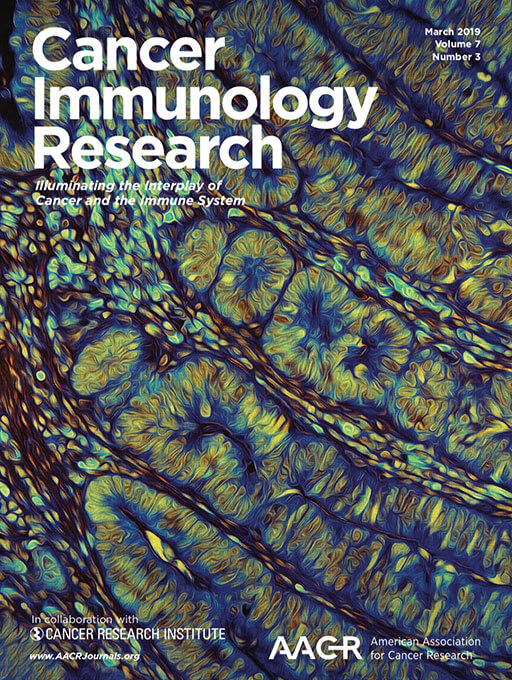

Robert D. Schreiber, PhD
Washington University School of Medicine
St. Louis, Missouri
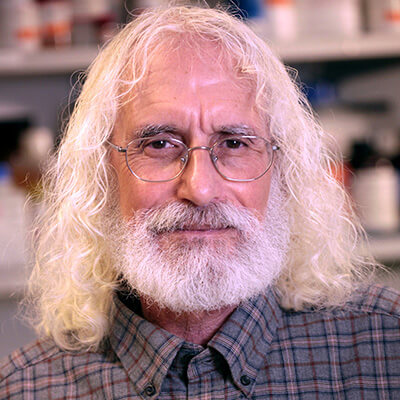
Philip D. Greenberg, MD
Fred Hutchinson Cancer Research Center
Seattle, Washington
Cancer Prevention Research
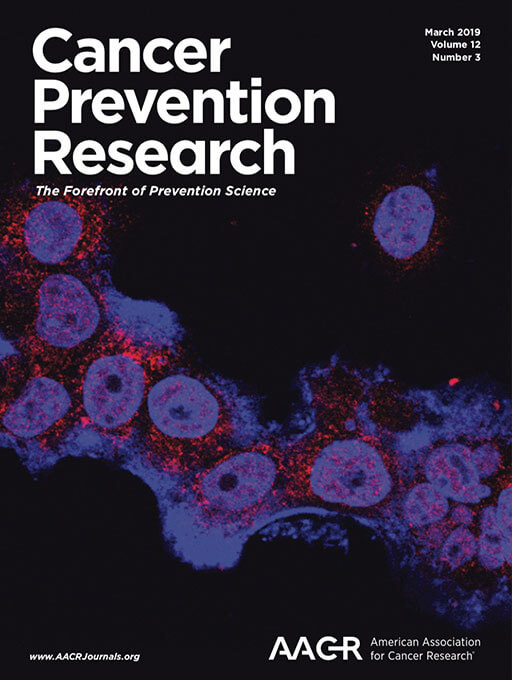

Raymond N. DuBois, MD, PhD, FAACR
Medical University of South Carolina
Charleston, South Carolina

Michael N. Pollak, MD
McGill University
Montreal, Quebec, Canada
Cancer Research
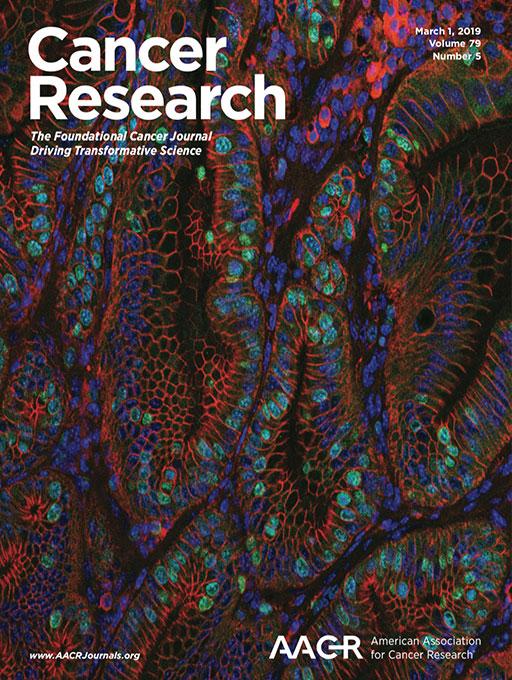

Chi Van Dang, MD, PhD, FAACR
Ludwig Institute for Cancer Research
New York, New York
The Wistar Institute
Philadelphia, Pennsylvania
Clinical Cancer Research
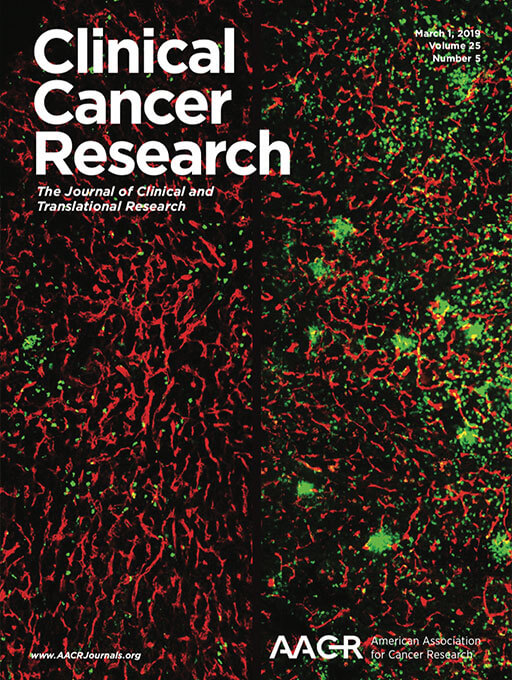

Keith T. Flaherty, MD
Massachusetts General Hospital Cancer Center
Boston, Massachusetts
Molecular Cancer Research
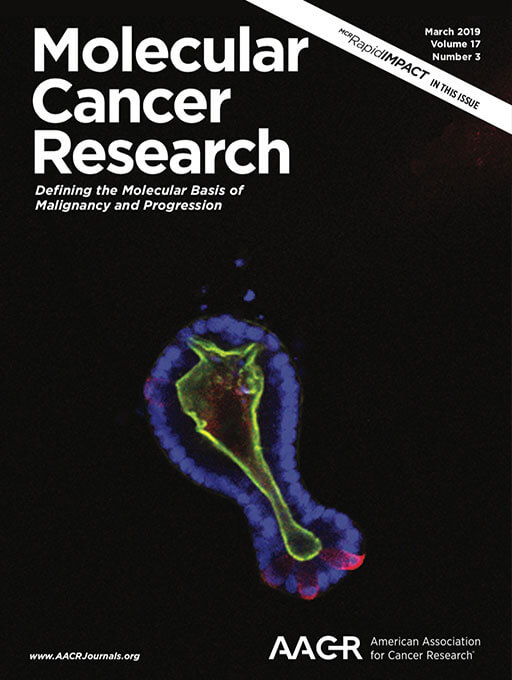

Karen E. Knudsen, PhD
Kimmel Cancer Center
Philadelphia, Pennsylvania
Molecular Cancer Therapeutics
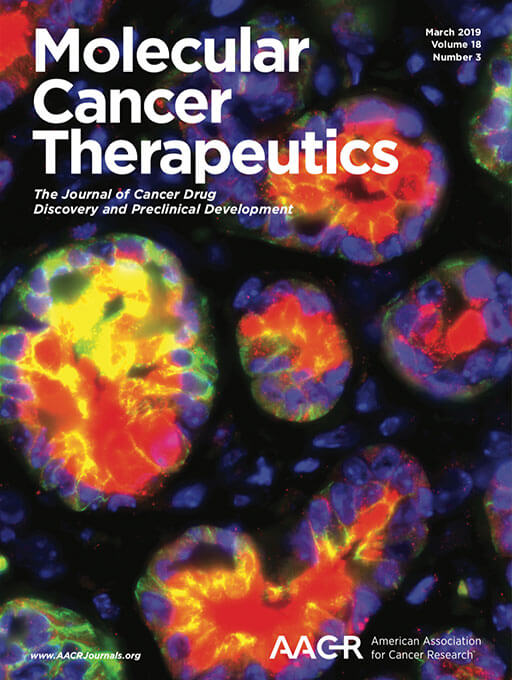

Beverly A. Teicher, PhD
National Cancer Institute
Bethesda, Maryland